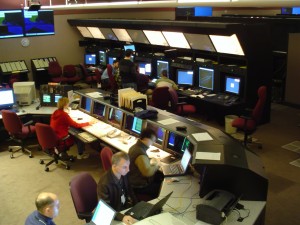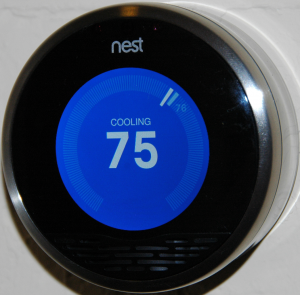This Congress still has some must-pass legislation to complete.
That includes a reauthorization bill that contains a bunch of much-needed reforms for the agency. But they slipped in a doozey of a change: complete privatization of air traffic control. The plan is to create a separate government-chartered independent non-profit to run the whole show, with the intention, of course, that it will be run much more efficiently than the  government ever could. I liked quote from an unnamed conservative groups from another Hill article:
government ever could. I liked quote from an unnamed conservative groups from another Hill article:
“To us it is an axiomatic economic principle that user-funded, user-accountable entities are far more capable of delivering innovation and timely improvements in a cost-effective manner than government agencies.”
Axiomatic, eh? Well, I think I see your problem…
Anyway, it’s worth taking a step back to think about this proposal from a few different angles. First, let’s remember what the FAA does. Really, there are three main activities:
- Write regulations
- Allocate funds for aviation-related programs (AIP and similar) and
- Run ATC (Note: the FAA’s ATC arm is called “ATO,” but I’ll keep calling it ATC here)
Honestly, there has always been something of a conflict between the needs of air traffic control with safety as top priority and efficiency and cost as lower priorities, and the rest of the organization’s needs. It is a small miracle that the FAA’s ATC runs the safest airspace in the world. But miracle or not, it is a fact.
Furthermore, it is also true that ATC has been slow to modernize. This is for several reasons. First, yes, government bureaucracy, of course. But there are other reasons, such as having congress habitually cut and delay funding for new systems (NB: when you are on temporary reauthorization, you don’t buy new things; programs do not progress. You just pay salaries.) Another problem is that the old systems, as cranky and obsolete as they are, work, and it’s just not a simple matter to replace a working system, tuned over decades with new technology, particularly if you require no degradation in performance in the process.
So does this justify privatization? Will a private organization do better in this respect? Well, here are some ideas for thought, in no particular order:
- a private organization will use fees to fund itself. This might be good, because they should be able to raise all the money they need, but then again, fees might grow without control. A private organization running ATC is essentially a monopoly. Government control is a monopoly, too — except that you can use the levers of democracy to manage it
- a fee-run organization will be mostly responsive to whomever pays the fees. In this case, it would be the airlines, and among the airlines, the majors would have the most bargaining power. Is this the best outcome? How will small carriers fare when it comes time to assign landing slots or assign routes to flight plans? How will general aviation do under such a system? Will fees designed for B747‘s coming into KEWR snuff out the C172 traffic coming into KCDW?
- Regulatory capture is a problem for any industry-regulating government entity. Does the appointment of an all-industry board of directors for a private organization that assumes most of those functions “solve” that problem making total capture a fait accompli?
- Will this new organization be self supporting or will it still depend on government money? How will it perform when there is an economic or industry slump? If there is a bankruptcy, who will foot the bill to keep the lights on?
- When the inevitable budgets shortfalls come, how will labor fare? Will they have to sacrifice their contracts in order to help save the company?
- I don’t know, but I’m just guessing, that nobody at the top of the FAA’s ATC today makes a million dollars a year. Will it be so under an private organization? If so, where might that money come from?
- Does an emphasis on efficiency server the flying public? To that matter, do the flying public’s interests diverge from those of the airlines, and if so, how are they represented in the new organization’s decision-making?
I honestly have not considered or study this matter enough to have a strong opinion, but so much of it causes the hairs on my neck to stick out.
I’ll give the authors of this new bill credit for one thing: they managed to get the ATC union (NATCA) on board, essentially by promising continuity of their contracts and protections. I’m not sure if that comes with guarantees in perpetuity. One thing I noticed immediately is that current employees would be able to pay into the federal retirement system. New employees…
[ Full disclosure: I am a general aviation pilot and do not pay user fees to use ATC, and like it that way. I do understand that this is a subsidy I enjoy. ]



